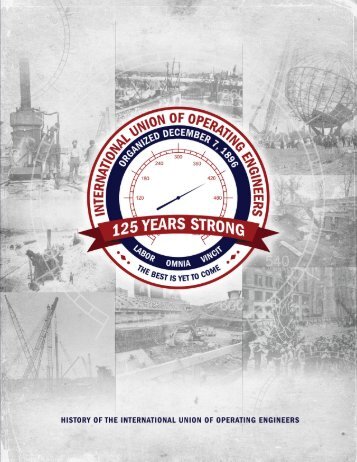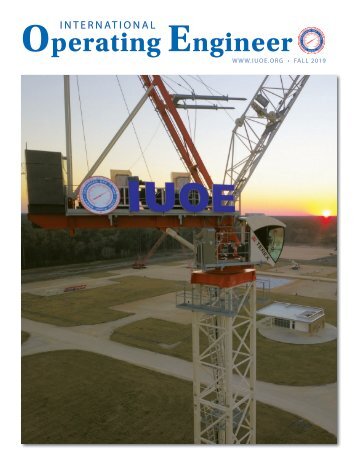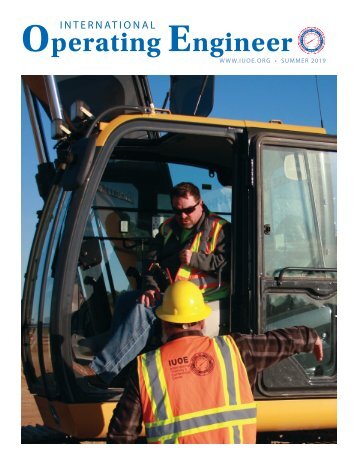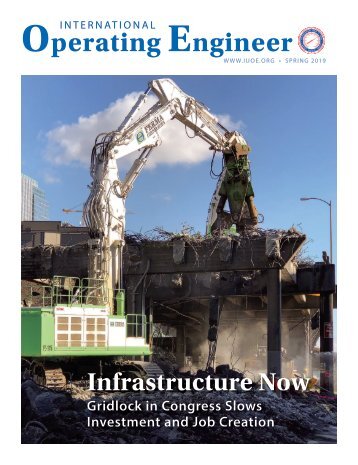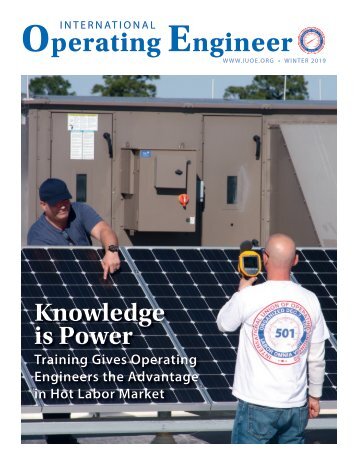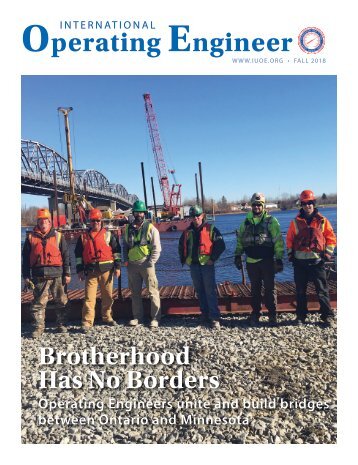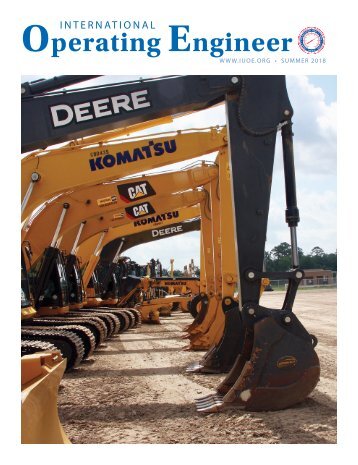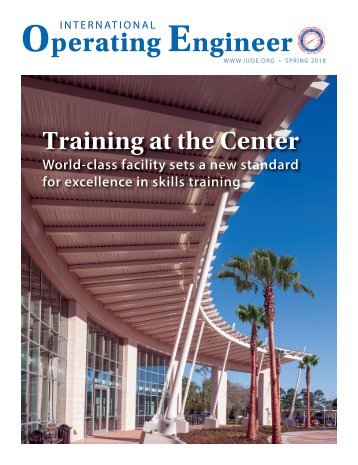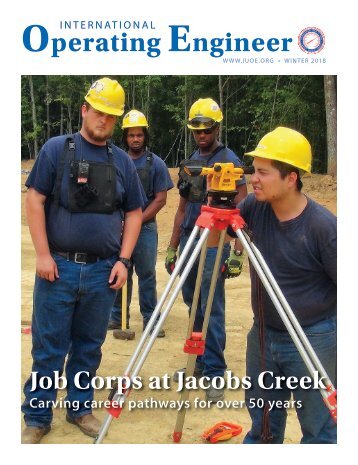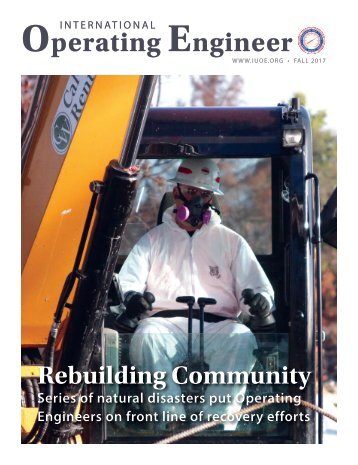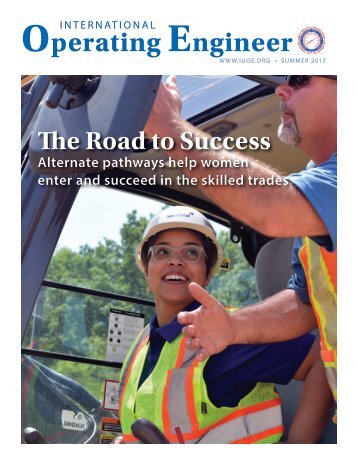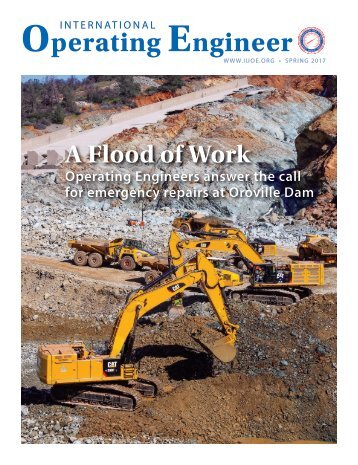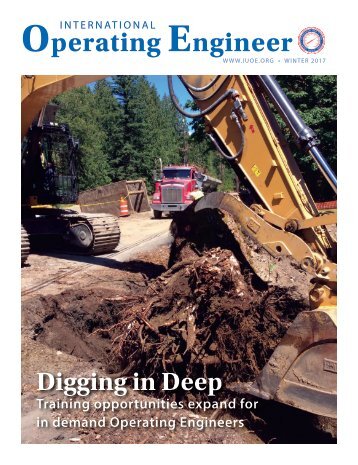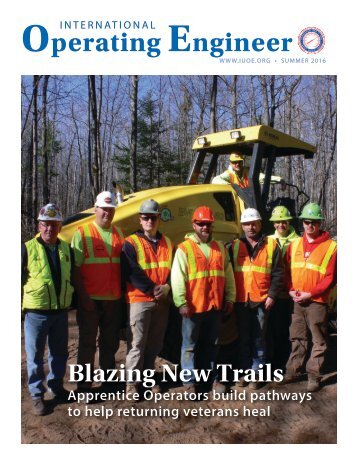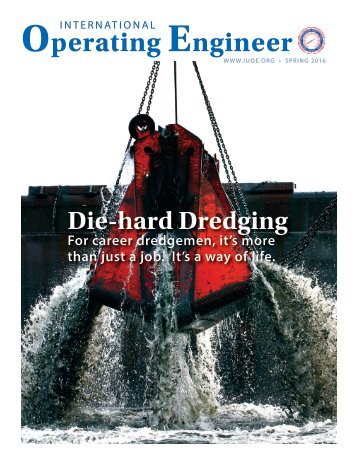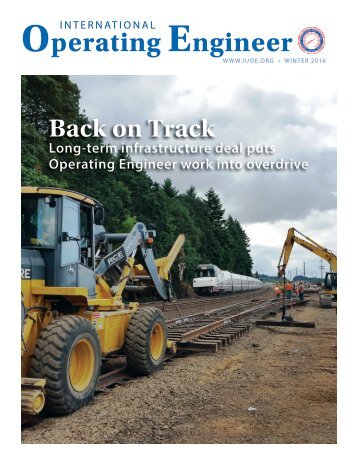International Operating Engineer - Fall 2019
- Text
- Membership
- Region
- Stationary
- Workers
- Engineer
- Engineers
- Organizing
- Operating
- Iuoe
Stationary
Stationary Engineers Local 30 Achieves Success Through a Culture of Organizing THE IUOE’S COMMITMENT to organizing under General President Callahan through the International Organizing Grant and other programs has helped grow membership throughout the International’s jurisdiction. Having served as a lead organizer for Local 30 before being elected Business Manager in 2014, William Lynn knew that simply talking about organizing wasn’t enough. It takes resources and building a culture of organizing within the membership. Upon taking the helm of Local 30, one of Lynn’s priorities was developing an aggressive organizing program at the Local that would reverse the trend of sluggish growth and build union density for the next decade. He immediately reached out to our International’s leadership about participating in the grant program and, with the IUOE’s support, real resources were dedicated to the Local’s organizing efforts. Business Manager Lynn implemented a strategic research division that would do the necessary work to develop strategies aimed at increasing union presence in key industries like higher education, power generation, gaming and entertainment sectors in New York and Connecticut. New organizers were brought in to do the critical groundwork in campaigns. More importantly, however, union members became the core of the Local’s organizing approach. Creating Infrastructure and Increasing Capacity At the annual Local 30 Shop Steward meeting in 2014, one of the key presentations focused on having organizing conversations and the basic framework of campaigns. The goal was to engage with the over two-hundred union shop stewards about the process of organizing and provide them the tools they would need to have the right conversations with non-union engineers at nearby facilities. Local 30 representatives then followed up the training by meeting with stewards and members at job sites to reinforce strategies and urging them to connect with their non-union peers in their personal and professional networks. This phase was centered on increasing organizing capacity by empowering member leaders and challenging them to do more to build union density. In addition to membership trainings on organizing, the Local made sure to address all campaigns in every newsletter, every member meeting and through their newly established social media channels. Local 30’s Facebook, Instagram and Twitter accounts all focused on organizing campaigns. Newly organized workers were invited to talk about their experiences at union meetings. In addition, allies in campaigns, like the students at Sarah Lawrence College who launched a campaign to support the workers joining Local 30 that culminated in an occupation of the President’s office, also attended and spoke at union meetings. An Aggressive and Public Approach Over the last five years, Local 30 has consistently held rallies, delivered petitions to university presidents and corporate boards, attended town council meetings to address worker grievances, and taken other very public steps during campaigns to eliminate fear, build solidarity and pressure end users. During a campaign at a power plant in New York State, for example, workers were facing intense pressure from their multi-national corporate employer. On the eve of the vote they were greeted at the plant gates by over one hundred Local 30 members supporting them. The demonstration snarled traffic on the local road and put the employer on notice that the union would negotiate the same way it organizes – with power behind it. Just this summer, the Local embarked on an organizing campaign at the Guggenheim Museum in New York City, the last remaining nonunion world class museum in the area. Management chose to fight the workers’ organizing drive and the union responded with a public campaign that landed in the New York Times and several other industry publications which are closely followed by workers in the community. As the public pressure grew, the Local 30 members at the Museum of Modern Art signed petitions of support and delivered them to the over one-hundred Guggenheim workers in the bargaining unit. The Guggenheim workers overwhelmingly voted to be represented by the union and Local 30 is currently in first contract negotiations. Since the fall of 2014, IUOE Local 30 membership has grown by 33.5% and is now over 5,200. With the support of the International and the commitment of its members, Local 30 has built a reputation as an organizing union and continues to do the necessary training, research and outreach it takes to keep that reputation. Local 30 Business Manager and International Vice President William Lynn remains focused on increasing density through organizing campaigns. “There aren’t any easy answers or shortcuts to bringing workers together to take on their bosses and fight for their union,” he says. “Movement building work is challenging and takes resources, commitment and grit.” “Like all IUOE Locals, we’re faced with obstacles in organizing that we try to overcome only to face new ones after we do. It’s necessary as a stationary Local to continue to organize our jurisdiction and make sure employers know that we’re a fighting union that will set standards in industries.” “Every Local 30 member is committed to this and with the continued support of our General President and our brothers and sisters in the IUOE, we will climb the mountains we have to in order to defend our union.” 16 INTERNATIONAL OPERATING ENGINEER FALL 2019 17
- Page 1 and 2: Operating Engineer i n t e r n at i
- Page 4: From the General President James T.
- Page 8: Training & Education IUOE Job Corps
- Page 12: Safety & Health respirator protecti
- Page 18: Politics & Legislation Gubernatoria
- Page 22: Canadian News Red Seal Chef Teachin
- Page 26: GEB Minutes General Executive Board
- Page 30: GEB Minutes in April at the mine si
- Page 34: Union Death Benefit Benefits paid J
- Page 38: 240 300 360 180 420 120 60 0 600
Inappropriate
Loading...
Mail this publication
Loading...
Embed
Loading...
International Operating Engineer
HEADQUARTERS
INTERNATIONAL UNION OF OPERATING ENGINEERS (IUOE)
1125 17th Street, NW
Washington, DC 20036
202 429-9100
CONTACT US
Send us an email here.
©2010 International Union of Operating Engineers. All Rights Reserved.|Terms Of Use|Privacy Statement|Sitemap

